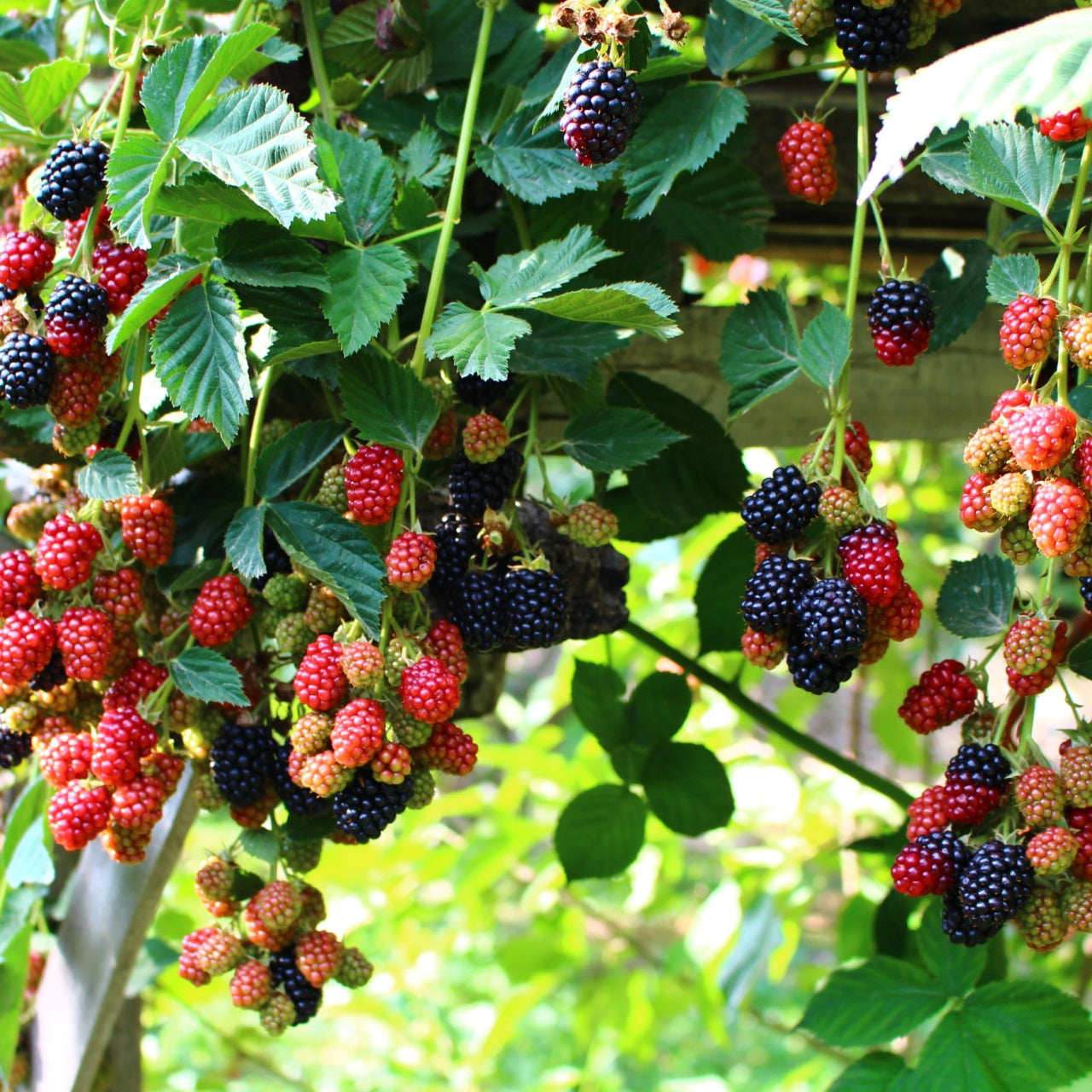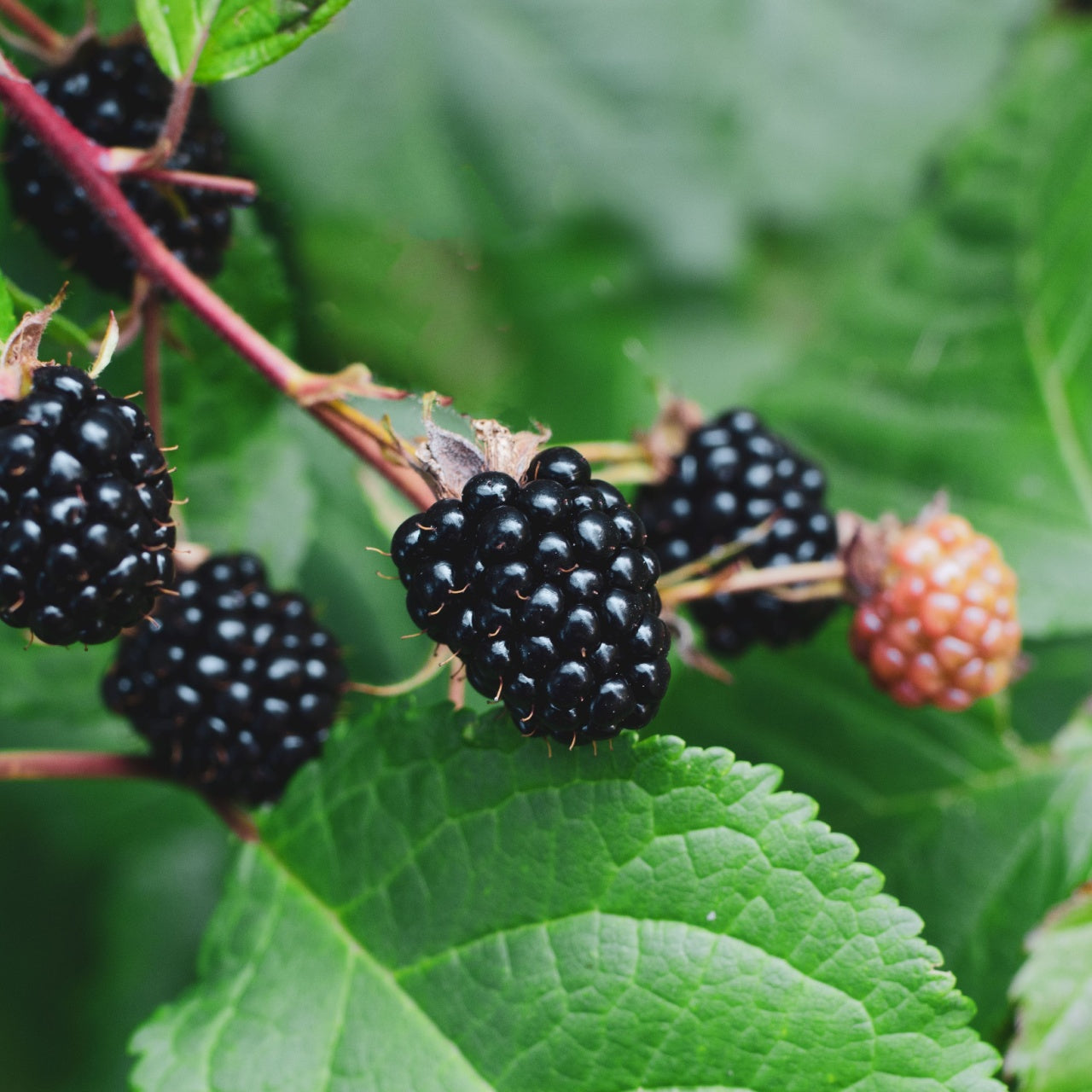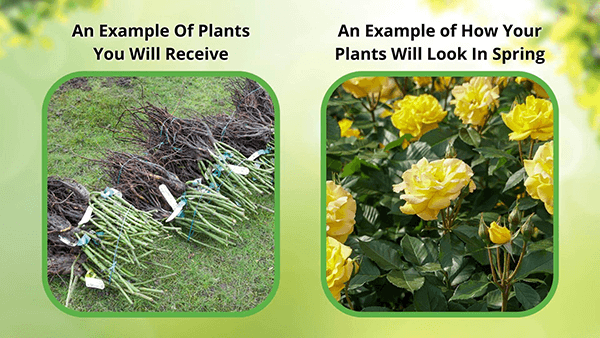Dewberry Plants
Dewberry Plants
This plant ships:
Ships November–April within 10 business days after the order is placed.Couldn't load pickup availability
Exposure
Sun or ShadeHeight at Maturity
Under 10 FeetUsage
FruitingShipped As
Bare-rootShips
Ships November–April within 10 business days after the order is placed.Planting Zones
5-8Dewberry Plants
Dewberry plants are closely associated with blackberries. Rather than high-arching or erect, they are slightly trailing or woody vine brambles bearing amassed fruits resembling raspberries. The plant flowers are mainly between April and June.
Dewberry Plants Are A Woody Vine
The older stems are woody and brownish, while the younger ones are green.
The density of flowers is moderate. The plant looks whitish and is characteristically subtended by a little leaf. They present in tiny clusters or sometimes on long stalks as singles.
Like raspberries, the berries are purple-red, with more rigid and extensive seeds than blackberry seeds. The fruit is a deep purple, nearly black, and covered in a thin coating of waxy droplets.
The Size Of The Perennial Plant
The plant grows in a trailing habit and reaches a height of approximately two feet. Its red-haired stems are covered in hooked prickles (slender thorns). Its leaves are complex, alternating, and roughly oval with sharp teeth.
They are primarily three-divided, with each lateral leaflet having a pointy lobe. They are low-growing perennial plants that grow like a woody vine, with stems reaching fifteen feet trailing the ground.
Its berries are tough to reach since they naturally run along the ground. Fruiting canes are commonly attached to a wire trellis, which helps to keep them off the ground, making the fruit more easily reachable.
Habitat
The plant occurs in abandoned pastures, fields, fencerows, thickets, or prairies. The European type is often limited to coastal areas, especially dune environments.
Pollination
Most berries are self-fruitful. For those that aren't, cross-pollination is mandatory to produce a crop.
Birds Love The Fruit
Several bird types include finches, waxwings, catbirds, relish the fruits of the Dewberry Plants, opossums, box turtles, and raccoons. As a source of food, they keep the ecosystem going.
Share



I have this planted in my backyard. A source of my healthy diet all year. Loving this dearly.



